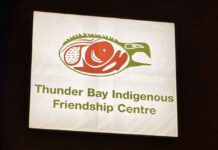THUNDER BAY – Editorial – Lets do our own version of myth-busters. You know the process, you take something that many people are positive is the truth, and examine it to see what the facts really are.
Do Aboriginal People Pay Taxes?
Here is an often claimed statement “Aboriginal people do not pay taxes”.
True or false?
Over and over again you have probably heard the claim, “Aboriginal people do not pay taxes”. It is claimed out so many times by people who attempt to claim somehow that it is some massively unfair advantage that Aboriginal people hold over the rest of Canadians.
Ironically, at least to this writer, there are many who hold views that lower taxes mean more freedom, who subscribe to this claim and hold it up as a problem. One might think it could be the ultimate means of proving their theory – if the claim were proven true.
So, is it true? Or false?
Looking at the statement, there is some truth in it. A Status Indian (as defined by the Indian Act) working on a reserve is considered tax exempt.
Here is what the federal Aboriginal Affairs department of Canada’s federal government says:
Do Status Indians pay taxes?
In general, Aboriginal people in Canada are required to pay taxes on the same basis as other people in Canada, except where the limited exemption under Section 87 of the Indian Act applies. Section 87 says that the “personal property of an Indian or a band situated on a reserve” is tax exempt. Inuit and Métis people are not eligible for this exemption and generally, do not live on reserves.
The exemption in Section 87 of the Indian Act has existed since before Confederation. It reflects the unique constitutional and historic place of Aboriginal people in Canada. The courts have held that the exemption is intended to preserve the entitlements of Indian people to their reserve lands and to ensure that the use of their property on their reserve lands is not eroded by taxes.
Employment income earned by a Status Indian working on a reserve is considered tax exempt. The courts have stated that factors such as the location of the duties and residence of the employee and employer must be considered to determine whether the income will be considered tax exempt.
The Goods and Services Tax (GST) or Harmonized Sales Tax (HST) generally do not apply to purchases by Status Indians if the purchase is made on a reserve or is delivered to a reserve by the vendor or the vendor’s agent.
For answers to particular questions, please refer to the relevant statute or appropriate regulations, or contact any Canada Customs and Revenue Agency office for publications and more information.
Now, for those who may feel that the federal department of Aboriginal Affairs might be getting it wrong, the Canadian Bar Association states:
How does tax law differ for Indian people?
Many people mistakenly think that Aboriginal people do not pay income tax, GST, PST and property tax. In fact, most aboriginal people pay tax on the same basis as others in Canada, except for some limited exceptions provided to Indians on reserve under section 87 of the Indian Act. Under this section, the interest of a status Indian or band in reserve lands, and the personal property of a status Indian or band situated on a reserve are tax exempt. As well, section 87 exempts from tax the goods and services bought by status Indians at businesses located on Indian reserves. The exemption also includes goods bought elsewhere and delivered to the reserve.
Canadian courts have defined when employment and investment income is tax exempt. For income to be tax exempt, a series of “connecting factors” must link the income to the reserve. This “connecting factors test” is fact-specific and beyond the scope of this script. Because of the high levels of unemployment on most Indian reserves, these tax benefits are not as significant as many people think.
Like other levels of government, Indian bands can make property taxation by-laws for people and businesses on reserves under section 83 of the Indian Act, Finally, modern treaties and land claims agreements contain exhaustive provisions regarding all aspects of taxation.
The Assembly of First Nations also states: MUST REGISTERED INDIANS PAY TAXES?
It depends. There are some situations in which Registered Indians do not pay taxes. Under sections 87 and 90 of the Indian Act, Registered Indians do not pay federal or provincial taxes on their personal and real property that is on a reserve. Personal property includes goods, services and income consistent with Canada Customs and Revenue Agency (CCRA) policies.
* In this document, when the term “First Nation” is used in the context of the Indian Act, it refers to an Indian Act band.
Since income is personal property, as a Registered (or entitled-to-be-registered) Indian, you may also be exempt from paying income tax on income earned on a reserve. For example, Registered Indians who work on a reserve do not pay federal or provincial taxes on their employment income. See the CCRA’s June 1994 guidelines of “Indian Exemption on Employment Income.”
Registered Indians do not pay federal or provincial sales taxes on personal and real property on a reserve. The federal Goods and Services Tax (GST) does not apply to on-reserve goods or to those goods acquired by a Registered Indian off-reserve if the goods are delivered to a reserve by the vendor or the vendor’s agent. Most provincial sales taxes are applied in a similar fashion. Special provincial rules may apply to items such as automobiles and alcohol. For example, in some provinces, an automobile must be registered to a reserve address to be tax exempt. For more information, contact the relevant provincial tax authorities.
A pamphlet outlining how federal GST affects sales and purchases by Registered Indians is available from all CCRA offices.
Now, in Ontario, an Aboriginal person with a Status Card can present that card when making purchases, and the provincial portion of the HST is removed from the purchase they are making.
Ontario Government on Aboriginal purchases under HST states, “The Government of Ontario has announced that its current retail sales tax exemption for Status Indians, Indian bands and councils of an Indian band will continue for qualifying off-reserve supplies (including sales and leases) as Ontario moves to the HST. This change would be effective in respect of supplies for which consideration becomes due or is paid without having become due on or after September 1, 2010”.
The myth that “Aboriginal people do not pay taxes” can now be listed as BUSTED.
James Murray
Chief Content Officer








